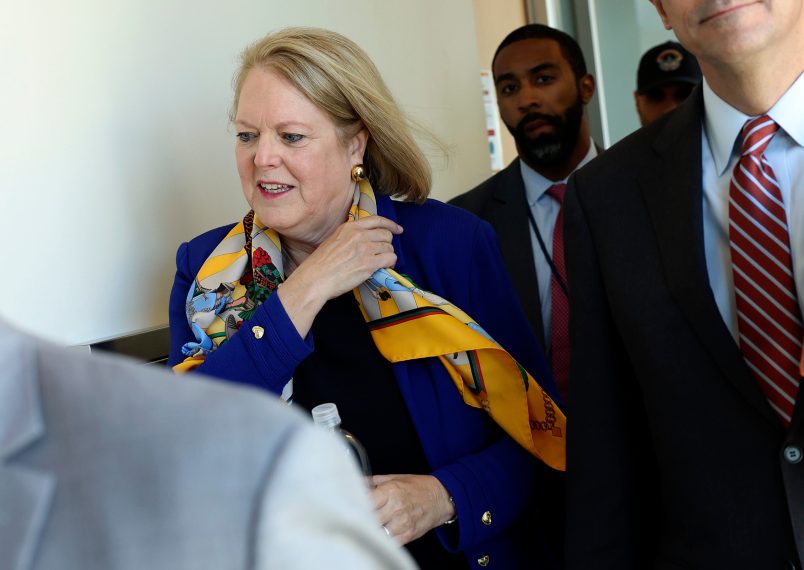Many Jan. 6 committee members jumped into Ginni Thomas’ questioning by their investigators, particularly to probe her belief that the 2020 election was infused with fraud, according to a transcript released Friday.
Thomas and committee Vice Chair Liz Cheney (R-WY) had a prolonged back-and-forth, with Thomas questioning Cheney too.
Cheney asked Thomas if she would’ve changed her view of the 2020 election had she known then that Trump administration members like then-White House counsel Pat Cipollone and then-Attorney General Bill Barr said there was no evidence of fraud.
“Honestly, I don’t think it would have, because millions of people still found that there were irregularities with the COVID changes to mail-in balloting,” Thomas responded. “And there were so many other things that, you know, I don’t think there’s a lot of — there’s a lot of people uncomfortable with the 2020 election despite what this committee is pushing. Okay?”
Cheney pressed her, pointing to the Trump campaign’s many unsuccessful lawsuits.
“So despite the fact that the courts had ruled in a number of instances, in fact judges appointed by President Trump had ruled very clearly and specifically that these allegations — that the campaign’s claims were not supported by the evidence, you were aware of those rules and just chose to ignore them?” Cheney asked.
“I just think there’s still a lot of things that are still being uncovered,” Thomas retorted. “And so I believed there was fraud and irregularity, contrary to clearly what you believe.”
Refusing to let the line of questioning drop, Cheney pushed Thomas to admit that there were legitimate paths for candidates to challenge the outcome of elections.
“Yes. And Democrats have done that in many instances — 2000, 2004, 2016,” Thomas said. “It seemed like there were a lot of people who claimed President Trump was illegitimate for four years and tried to undermine his administration. Do you agree with that?”
In response, Cheney ran through team Trump’s many unsuccessful lawsuits seeking to overturn the election.
Throughout the transcript, Thomas was usually careful to use the past tense when talking about her beliefs that the 2020 election was poisoned with fraud. And both she and her lawyer objected to questions premised on the idea that she considers the election “stolen.”
She also volunteered that Joe Biden is currently the President, though seems to stop short of asserting that he was elected legitimately.
“I worried that there was fraud and irregularities that distorted the election but it wasn’t uncovered in a timely manner, so we have President Biden,” she said at one point in the transcript.
Much of the investigators’ questioning focused on Thomas’ communications after the election, some of which have already become public through the release of Mark Meadows’ texts. During the deposition, she repeatedly expressed regret about what she wrote in those messages, but maintained that she was operating at too much of a surface level to be knowledgeable about specific plots to overthrow the election, like the fake electors scheme.
She also, perhaps stretching credulity, steadfastly insisted throughout that she and her husband, Justice Clarence Thomas, do not share any details about their work with each other.
That contention attracted investigators’ scrutiny. They asked her, in particular, about an exchange with Meadows when the then-White House chief of staff promised Thomas that he would keep fighting to overturn the election, that he would stake his career in D.C. on it. She responded with relief, saying that she “needed that, plus a conversation with my best friend just now. I will try to keep holding on.”
Upon questioning by the investigators, Thomas admitted that the “best friend” she refers to in her text “looks like it was my husband.”
She said that she has no memory of what her husband said in that conversation to comfort her.
“I wish I could remember, but I have no memory of the specifics,” she said. “My husband often administers spousal support to the wife that’s upset.”



